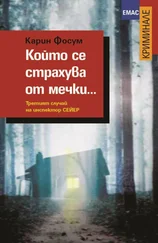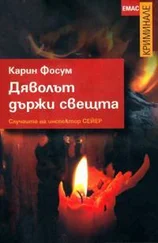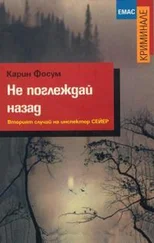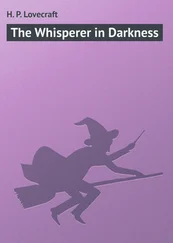She knew that she had to write to her son and tell him the truth. Or what the police claimed was the truth. But she had no idea why she should trust them, why they had stripped her of her credibility. And they would disappear out of her life soon enough. She would be left alone with a diagnosis as destructive as a wrecking ball. They said she had inherited the mental illness from her father. That she had been ill for a long time. That she had never been terrorised, that there was no stalker, that she had never asked the police for help. This terrified her so much that she clung on to her own version for dear life, for fear she would stop breathing. The Agent had come to her house to offer her a place in Paradise. They said that was his only errand. But only she had looked him in the eye and heard his voice. You are going to die.
Ragna always woke up early in the morning, and was given her medicine in her cell, in a little plastic cup. She had to swallow the pills while the officer watched: Zyprexa morning, noon and night. It was humiliating. Her father had said that Zyprexa could kill you, he had heard of several cases. But she did not mention it. But she got into the habit of studying the officer closely while he or she waited for the empty cup.
They had robbed her of her life. They had forced another reality onto her that she did not want. She cried a lot in the period that followed. Did madness provide some form of mitigation — what sort of reasoning was that? She found it incomprehensible. She wanted to take responsibility, she wanted to serve her time. She was no longer friendly to the prison guards, and peered at them with narrowed eyes, as she saw more clearly then. She seldom spoke, and sat by the window for hours, keeping watch on the light, making sure it behaved as it should, that the sun rose and set at the right time. She had to accept their awful claim: that what she had seen did not exist, and what she had heard had only happened in her head. But she could not. She was, of course, exhausted after a long autumn of terror; she had balanced on a knife edge and seen signs of her tormentor everywhere, and her desperation had given rise to some strange thoughts. It happens when people are under a lot of pressure. But madness was something else. In a sudden flash, she remembered sitting in the kitchen beside the body, waving at the smoke alarm. The memory made the blood rush to her cheeks. She stood up so abruptly that the chair fell over. No one waves to their smoke alarms — why had she done that? Then she pulled herself together again. Fine. It was perhaps a little over the top to accuse the authorities of surveillance, but she was suffering from lack of sleep — it affects your mind, and you see things everywhere. The next thing that popped up in her memory was the sound of the Agent’s hand when he knocked on the door. The feeling she had at that moment: he is here now. I have known he would be for a long time. It was almost a relief when he followed her into the kitchen and they stood there face-to-face. He was a person of flesh and blood, not a ghost, not something she had imagined. And then he had repeated the same message, only spoken this time. She remembered rummaging around in the drawer, her hand between the spoons and rolling pins and ladles. She wanted to assert herself once and for all.
She sat on the bunk with her face in her hands and recalled every single second. His eyes, so astonished. His nervous hands that were itching to open the folder and show her the truth.
She let this torrent of memories pour over her, tried to accept them one by one, tried to see them in a new light. In her mind, she composed the letter she wanted to write to her son, where she told him everything. What would he think, what would he believe? It would not lead to anything positive. He may even fear that he had inherited the illness. He would never come home now, he would think she was contagious, that she too would die sitting down with a cable round her neck, as his grandfather had done, the blood gathered like ink stains at the bottom of his body. In all these years, she had received nothing from him except a few mean cards, and yet he had always been near. And now, after the event, he was even closer than before. If she wrote the letter she wanted to write, she would frighten him away forever. All he would feel when he thought of his mother was shame and horror. He would deny her existence, never mention her to others, not even the prison priest. My mother, he would say, no, I have no contact with her, nor do I care what she does.
Ragna cried again, tasted the salt in her mouth, felt desperately sorry for herself. She looked around the cell for an escape. The first thing she spotted was the green metal cupboard, with an even more solid steel handle. Then she looked over to the window and the multicoloured curtains made from a coarse material that would be impossible to tear. Her nylon shop coat would not work either, and she did not have any shoelaces or a belt. She reached out to check the quality of the sheet, but it was synthetic, they had thought of everything. All this talk of the truth as something bright and pure. She had to adjust to it now, bow down to it, grovel. A defiant rage surged through her and she decided to write to Berlin anyway, to give him her version of the autumn’s events and then the police version, which was not the same as hers. Her crime in all its horror. The fear and anger. The admission of guilt, which they now wanted to deny her, which they thought she did not need to assume, because she was ill. They believed they were saving her, and clearly did not understand her sincerity, her future. All doors would be closed when people read her papers, when it was written there in black and white — what medication she had to take, what it did to her head and body. They had cast a different light on everything that had happened. The only part that was real was the murder. Bennet slid down from the chair, slowly like a doll, first his head dropped, then his arms, and finally his feet gave way, as he floundered for something to hold on to and found the table leg.
She chewed on the pencil for a long time, as she used to do when she was a child. The wood softened and had that peculiar taste that she liked so much. Then she wrote with determination, word after word. And as she wrote, she felt calmer. This was a hugely important project. There was nothing left to lose when your reason had been taken from you. According to the doctor, the medication would keep her in the real world where everyone else lived. The chemicals would, in effect, stop any attempts to escape to another reality, she would see the same things as everyone else, hear the same things as everyone else. They would strip her to the bone in court, revealing everything about her behaviour over the years, and various other events. The newspapers, she wrote, would devour her like vultures, as though she were already a corpse, contaminated by something that stained her whole family. She underlined certain words, or she scribbled them out and found better, more precise formulations. She dried her tears. She wrote faster, she worked herself up into a sweat. As she progressed, she remembered her father, everything he had said, and now she understood it all. Ragna, he had said, you must always be the master of your own life. That is what Ragna means, goddess or master. You must never let anyone force another reality onto you. You are one of the gifted. You are one of those who can see where we are going.
And yet here she was, she had surrendered to them. They had shown the evidence. They were many and she was one. She cried again. Then she thought about the seven billion people living in the world, who went to bed at night and dreamed secret dreams in secret places. People were only together for brief moments in time.
Читать дальше












